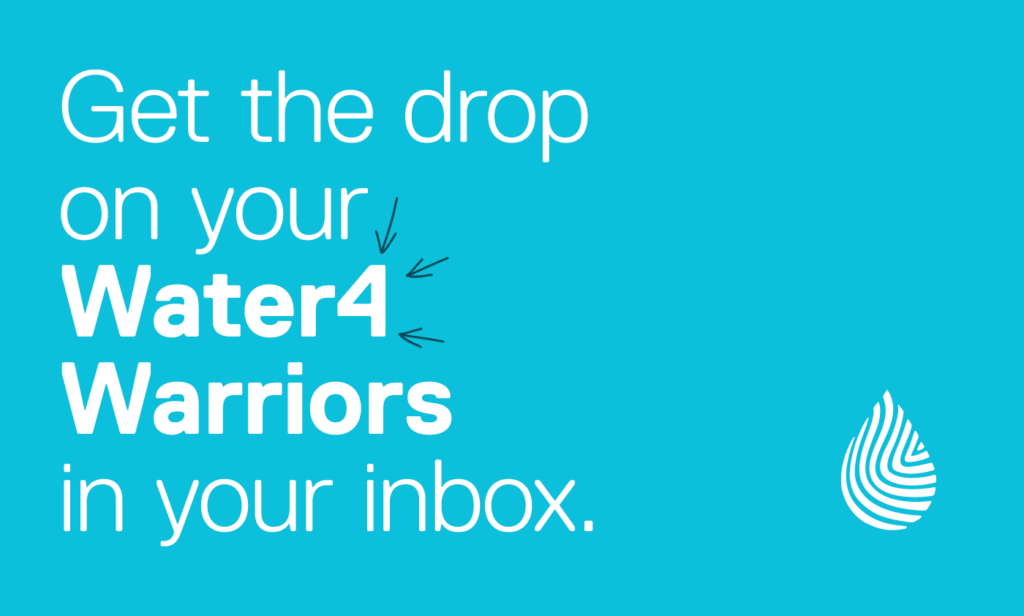Water4, through the heroic work of its local enterprise partners, is already responding to the COVID-19 crisis. When other U.S.-based organizations have to pull back, shut down and fly home, Water4 partners are scaling their work to meet this growing challenge.
Water4 partners remain on the front lines, playing a key role in slowing the spread through updated curriculum and the continued practice of the two key threats against coronavirus: hand washing and social distancing.
So how do we change our WaSH approach in the age of coronavirus? Well, if you guessed by having 10 people each standing 6 feet apart, that would be a good place to start. But there’s so much more.
If you’re anything like me, you’re reading this article from inside your house, which you haven’t left in a few days. You’ve washed your hands more times than you even thought possible. Odds are you may be getting a little stir crazy and wondering if what you’re doing is even making a difference. Well, let me tell you, it is.
Behavior change starts at home, so we are modeling the behavior we are asking our customers to adopt. First, Water4 staff from Oklahoma to Zambia are taking the right precautions to prevent the spread of COVID-19 within our own families. We’re also sharing information with our partner enterprises, drill teams, and water vendors, ensuring good practices cascade into the communities we serve.
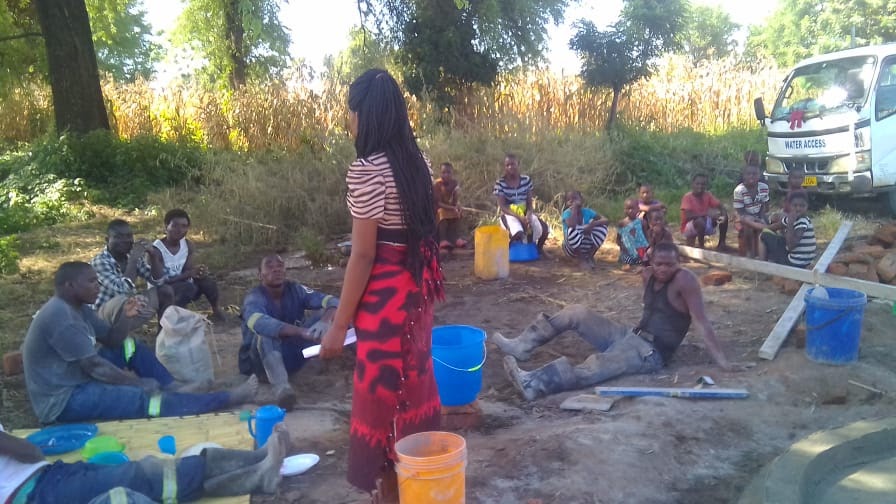
Jannet Muwira, WaSH facilitator at Water Access in Malawi is using Water4 guides to teach the Water Access drill teams to effectively drill while maintaining COVID-19 safety measures.
Second, we have rapidly adjusted the Water4 WaSH curriculum to include key messaging on COVID-19 that align with the WHO and CDC guidelines:
- The symptoms of coronavirus and how it spreads
- Proper handwashing techniques using a 7 step approach
- What Social Distancing is, its importance, and how to implement
- When and why to use a facemask as well as how to make one with commonly found materials
- And last but not least, the right time to wash: before and after touching eyes, nose, and face; and before and after visiting the market, exchanging money or collecting the very water you use to wash your hands!
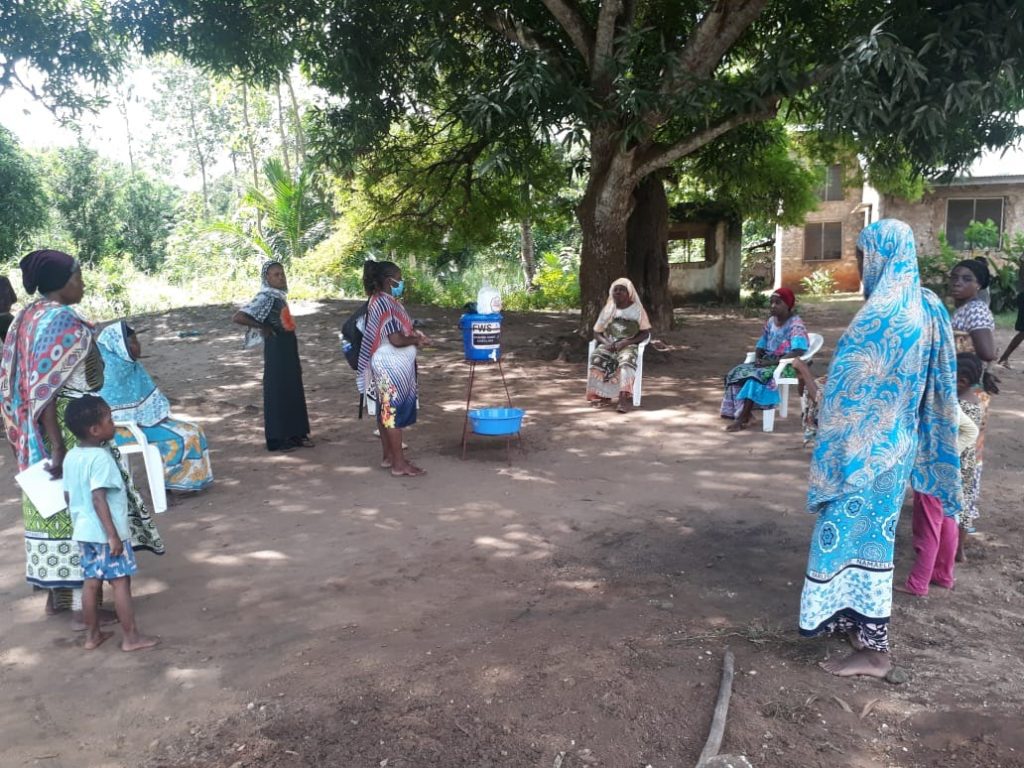
Kenya – COVID-19 WaSH training: Rose Muketha, WaSH facilitator for Freedom Water Solutions, uses the new documentation Water4 has produced on COVID-19 to help implement proper social distancing practices during training as well as teach how to implement the practices in daily life.
Third, we are slowing the spread both within our enterprises and in our consumer markets. Did you consider that when hundreds of people queue to fill their jerrycan with water or gather around a hand pump to practice prevention, a water point itself can become a dangerous point of transmission?
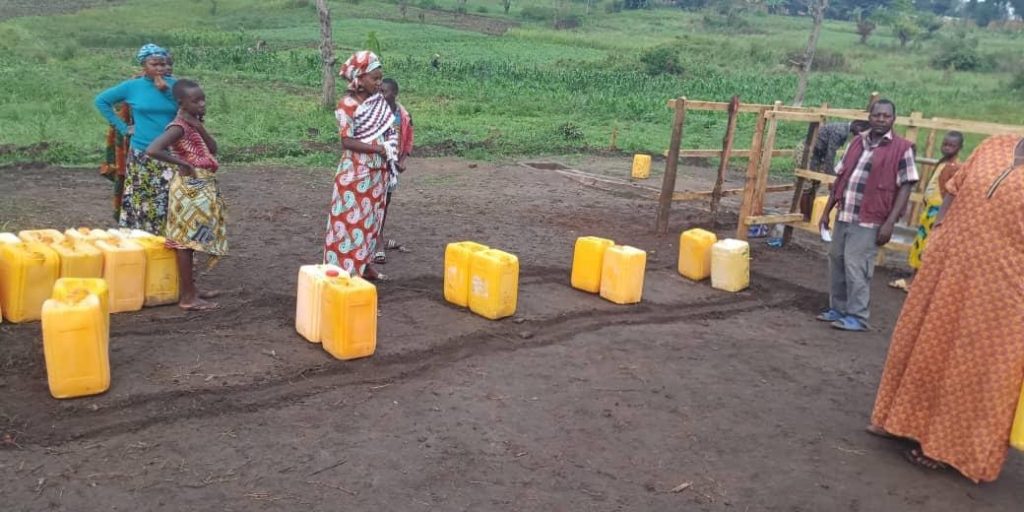
Florence Madjesi, WaSH facilitator with AEDR in DRC and Water4 WaSH Champion, trains community members on social distancing at water points. Using visual indicators – in this case lines drawn in the dirt – is the best way to remind people to keep their distance while at a hand pump.
So what’s next on our new WaSH agenda? Our partners, from Ghana to Zambia, are now translating new materials into local languages and posting them in high-traffic areas to support local governments in getting the right messages out to the public.
This rapid response would not be possible without your support. Please help us continue responding to the challenges posed by COVID-19, modeling good behavior, and staying on top of this evolving crisis.

